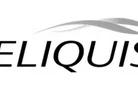NICE recommends anti-clotting drug Eliquis to patients

A new anti-clotting drug manufactured by Pfizer and Bristol-Meyers Squibb has been recommended for use by the National Institute for Health and Clinical Excellence (NICE).
Eliquis has been described by the organisation as a “clinically and cost-effective option for preventing blood clots.”
NICE believes that Eliquis, which is also known as apixaban, will be particularly suitable for use in post-operative patients who have just endured hip or knee surgery.
To read the latest edition of Healthcare Global, click here
- Church claim that God can cure HIV causes six deaths
- New cervical cancer vaccine protects against genital warts
- New air filter improves symptoms for asthma sufferers
According to NICE, for a course of treatment lasting 12 days following a knee replacement the cost of prescribing Eliquis will stand at approximately £41.16.
Other estimations suggest if the drug was prescribed to a patient for 34 days after a hip replacement the cost would be £116.62.
Professor Carole Longson, director of NICE's Health Technology Evaluation Centre, commented: "We are pleased to have been able to produce final draft guidance on the use of apixaban just six months after it received its license for the prevention of VTE in patients who have undergone planned hip and knee surgery."
She added: "The NICE clinical guideline 'Venous thromboembolism: reducing the risk' recommends that people having elective hip replacement or elective knee replacement surgery should be offered low-molecular-weight heparin, dabigatran etexilate, rivaroxaban, or fondaparinux to prevent VTE."
"Although apixaban had only been directly compared with one of the options recommended by the clinical guideline—enoxaparin, a low-molecular-weight heparin—the committee was satisfied that apixaban is a clinically and cost-effective option for preventing blood clots, alongside other effective treatments already recommended by NICE," Longson said.
Our magazine is now available on the iPad. Click here to download it.



